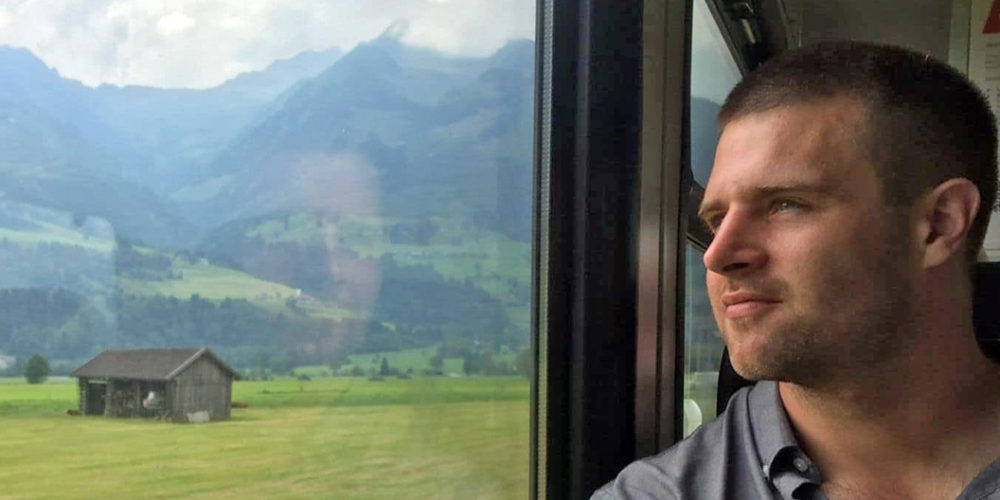“It seemed like as good a time as any to take on a ‘fun’ project like that — something that was quite a bit different from what I had been doing,” he says.
Conducting his research between March and June of 2020, he made a monumental discovery: Faster-than-light travel without exotic matter, or substances with negative energy density, is feasible.
Lentz’s recently published paper, “Breaking the warp barrier: hyper-fast solitons in Einstein-Maxwell-plasma theory,” focuses on using the intrinsic qualities of gravity as we understand it through general relativity to move a spacecraft — potentially with people inside — at speeds faster than light.
From YouTube videos to news articles to trending Reddit threads on this exciting and imaginative topic, the response from the public has been overwhelmingly positive, he says.
Set on Space Physics
Raised in Klamath Falls, Oregon, in a household that heavily encouraged learning, Lentz was always drawn to the sciences, especially things like exotic propulsion.
“It was something that had been fascinating to me from reading and watching too much science fiction as a kid,” he says. “I gained an interest in seeing if any of these fantastic technologies that were really just plot devices in Star Trek could actually exist.”
The space physics graduate credits much of his development as a scientist to faculty mentors like Dr. Quentin Bailey and former mathematics professor Dr. David Russell, who helped shape his perception of physics as a discipline, as opposed to something found only in popularized science books, he says.
“I was daunted by all of these laws and equations I was reading about, created by people 100 or more years ago and thinking, ‘how could I produce something that significant?’” he says. “Over the course of those four years, it became much clearer and less intimidating to me.”
Driven to Discover
Having since returned from Germany, Lentz now works as a modeling and simulation analyst for JDSAT Operations Research & Big Data Sciences in Virginia. While there is much more to be uncovered, he looks forward to seeing how much further the research project can go and how it will progress the field.
In March 2021, he returned to his Embry-Riddle roots to deliver a virtual presentation on his findings through the Jim and Linda Lee Planetarium’s Science Speaker Series.
“It’s a very imperfect path I’ve taken with lots of twists and turns, but that’s kind of the point,” Lentz says.
